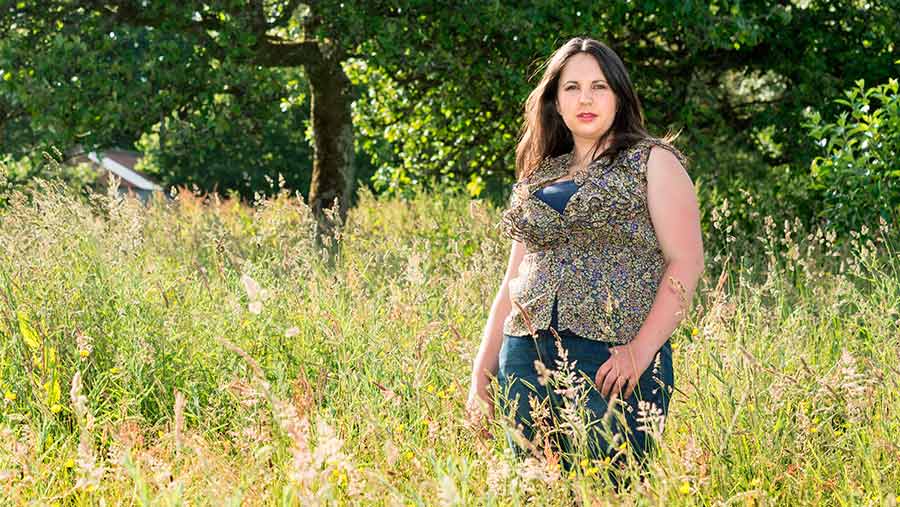Opinion: State of nature? More like the state of society

The recent publication of the State of Nature report has once again stirred up the media, resulting in attention-grabbing headlines citing the deplorable ramifications of intensive agriculture and blaming modern farming practices for the decline in Britain’s biodiversity.
I’m all for environmental research and, like all farmers, take my responsibility for protecting and enhancing the wildlife on my own patch very seriously.
The report highlights some key areas where we need to increase our focus but I am beyond hacked off at the way the message has been disseminated to the mass media and, subsequently, the public.
See also: Opinion: A farm upbringing gives many useful life lessons
Scan the internet for around 30 seconds on the subject of the report and the top hits on Google are all from my favourite non-governmental organisations (NGOs).
The key message they are pedalling to the public is ‘the intensive management of land had by far the largest negative impact on nature across all habitats and species.’ Thanks guys, that’s really helpful!
At a time when everyone is scrambling to exert their influence over post-Brexit reform of rural subsidies, the wealthiest NGO’s, who have a vested interest in securing as much funding as possible through extended ‘greening’ subsidies, put out a very well funded and admittedly impressive scientific report that can easily be manipulated to support their calls for a move away from food production.
While they don’t go so far as to blame farmers for the decline in farmland species, the rhetoric is clear. Modern farming has destroyed the birds and the bees.
Revolution in food production
The production-based subsidy system, which was developed after the Second World War, was crucial at a time when people were really hungry.
The decades that followed saw a revolution in food production, the likes of which the world had never seen.
The State of Nature report cites the loss of mixed farming as a key factor in the loss of species. We farm in an area that once had very diverse agricultural production.
Most of our fields were once market gardens growing a wide variety of fruit and veg that was sent to markets across the country via the local train station. Most farms, ours included, had a small dairy herd, a flock of sheep and some pigs.
The produce from our acreage would have supplied a local network of grocers, butchers, dairies and bakers. Furthermore, that is what the public were eating, they knew what was in season and ate food made by people in their town. Processed food in packets was an expensive luxury.
State of our health
Fast forward to 2016, and a quick glance around city centres reveals the shocking change that has occurred over the last 30 or so years.
Never mind the state of nature, I think we should be more concerned about the state of our health. Alongside the increased production of agricultural commodities over the last century, the food industry has exploded beyond the farm gate. Eating is big business in the UK, but it is slowly killing us.
Far from the malnutrition and sky-high food prices we were threatened with in the 1950s, today obesity is becoming a pandemic and costing our health service billions of pounds.
It’s not farmers who are doing this, just as it is not farmers who are responsible for the practices that have damaged biodiversity. It is society itself, grown fat on convenience and plentiful supply.
Society wanted cheap food and big business handed it to them. Supermarkets rammed to the roof with cheap, processed food. Meat and veg homogenised into a never-changing pile of plastic packets.
This is where the problem lies. The state of nature is a reflection of the state of society. Cheap food will cost the earth.
I am a product of this modern age, I’m as addicted to the supermarket and fast food outlets as the next person.
My kitchen is packed with supermarket products in plastic packaging barely recognisable as the product that left the farm gate.
Food businesses have found ever more profitable ways to process food into highly addictive products that are swelling our waistlines and widening the gap between the farmyard and the kitchen table.
Demand for cheap food
I don’t have the answers to the problems faced by both the countryside and our food culture in this modern age, but it is far too simple to say that modern farming practice has been the cause of the decline and planting beetle banks and buying free range eggs will reverse the process.
Modern intensive farming is driven by consumer demand for cheap food. It is fuelled by the requirements of massive food retailing conglomerates to source agricultural products of a uniform quality at the lowest price possible.
Then governments wade in with poorly informed legislation to police every aspect of our business, from hedgecutting to what disinfectant to use.
At the bottom of the pile will always be the farmers. Stoic, sensible people scrabbling to keep up with a society constantly lambasting them from all sides for destroying the environment, factory farming animals and robbing the taxpayer through subsidies.
Quite frankly, I don’t know how we should start to clear up this mess, but I do know that we can’t do anything without the support of the public.
The media coverage of the State of Nature report is about as useful as a chocolate teapot.
Jess Jeans and her husband Will run 75 suckler cows on an 80ha National Trust farm on the Devon/Cornwall border. They have two children, Teddy and Lydia. Jess has a degree in rural business management and enjoys horse riding in her spare time

